Top 10 festive foods
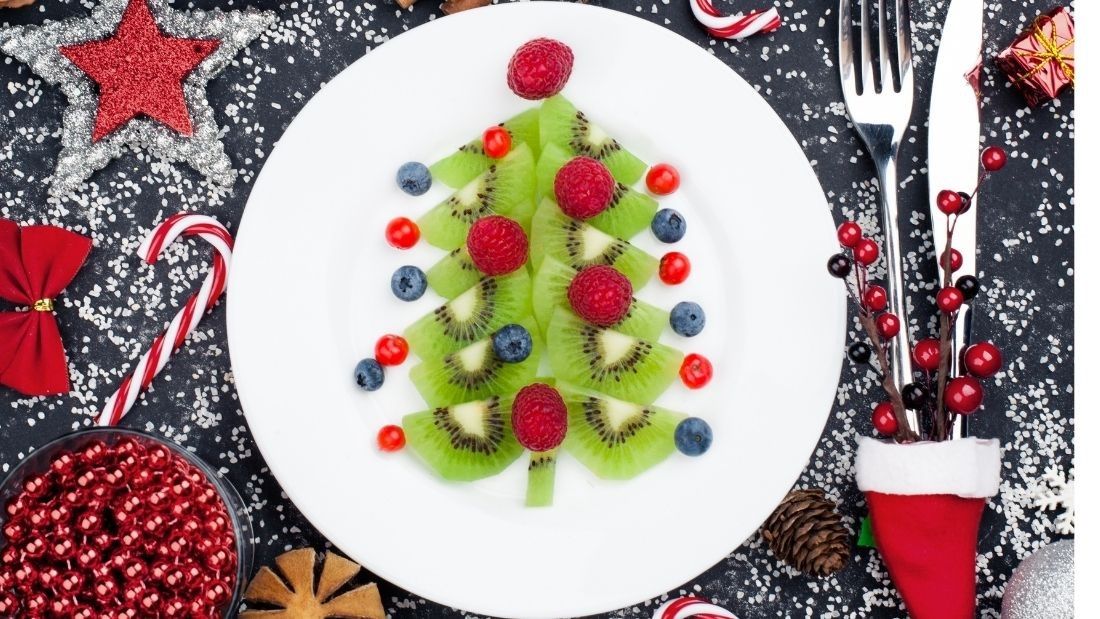
The top 10 festive foods to support your health this Christmas
Chestnuts
Chestnuts contain less fat than other nuts, such as almonds and cashews, but are a great source of complex carbs and fibre. They are rich in B vitamins and vitamin C and are a good source of antioxidants and minerals like magnesium and potassium, which help reduce your risk of heart disease and stroke. Sprinkle chopped, roasted chestnuts on Brussels sprouts, soups and salads, or just eat them still hot straight from the roasting pan!
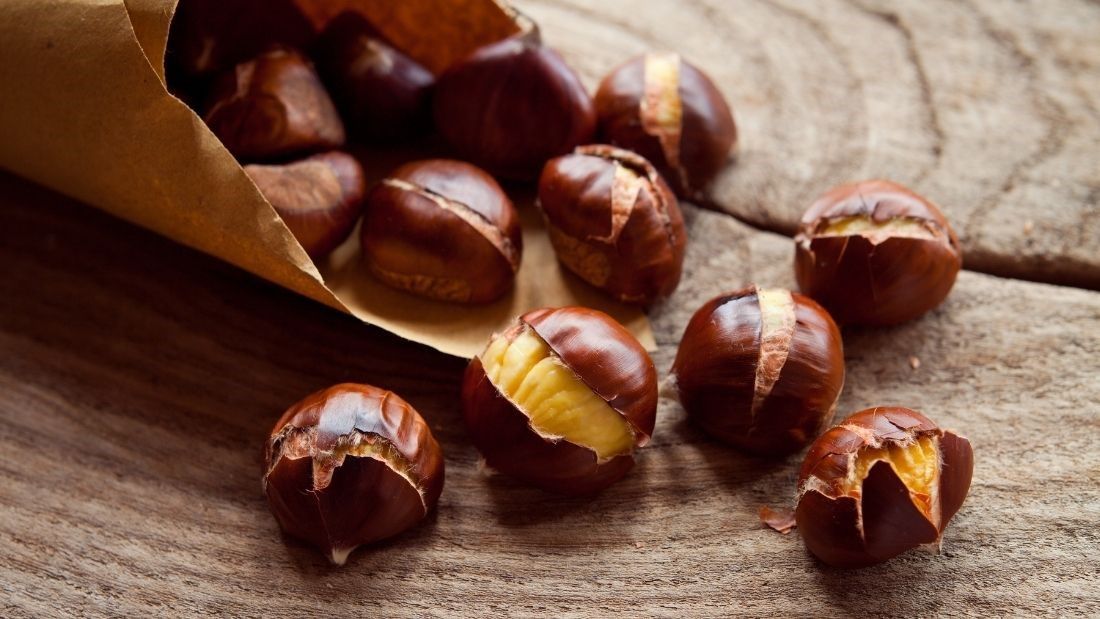
Brussels sprouts
Sprouts are mini-powerhouses packed with vitamins, minerals, antioxidants and fibre. They are a particularly good source of vitamin K along with spring greens, kale, spinach, cabbage, watercress and broccoli. Vitamin K plays an important role in healthy blood clotting and helps keep our bones healthy and strong. Low levels have been associated with an increased risk of osteoporosis and arthritis. They are delicious lightly steamed with vegan butter and black pepper, stir-fried with soya sauce or they can be used raw and shredded like cabbage in a zesty, crunchy festive slaw.
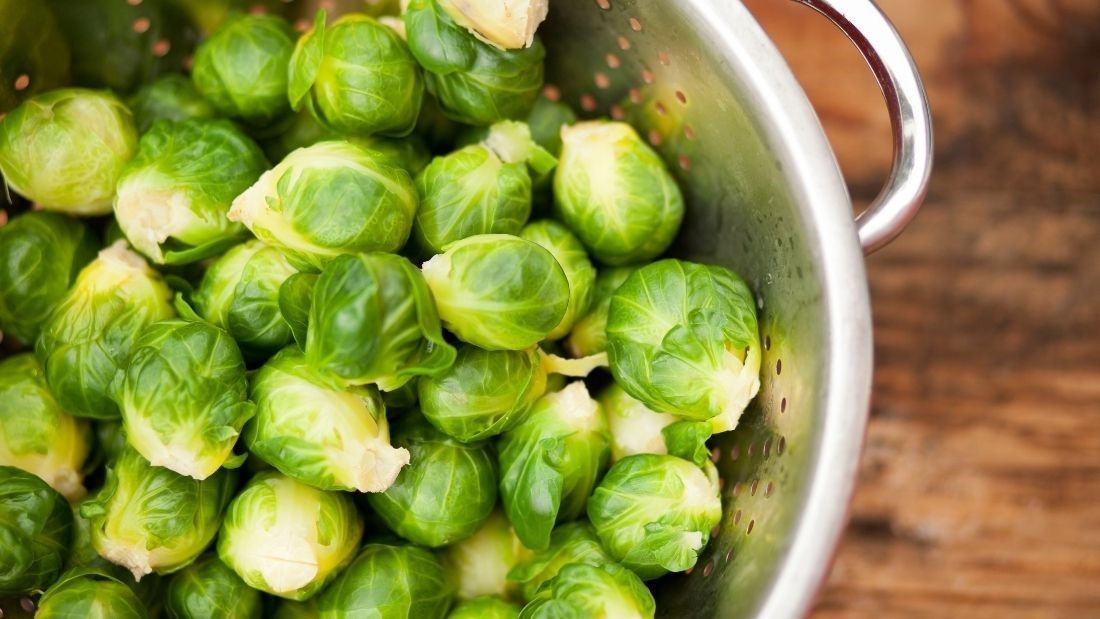
Parsnips
Parsnips are a rich source of the mineral potassium, which can help reduce blood pressure and lower the risk of heart disease. They are also a good source of folate (vitamin B9) important for women planning a pregnancy. Just one cup of parsnips as a side dish provides 28 per cent of your recommended intake of fibre! The soluble fibre in parsnips can help reduce cholesterol, lower blood sugar levels, prevent diverticulitis, reduce obesity, enhance digestion and more. Packed with antioxidants and vitamins too, this root veg provides a nutritional festive boost. Jolly them up on the day by baking them coated in flour and vegan parmesan or make your own parsnip crisps.
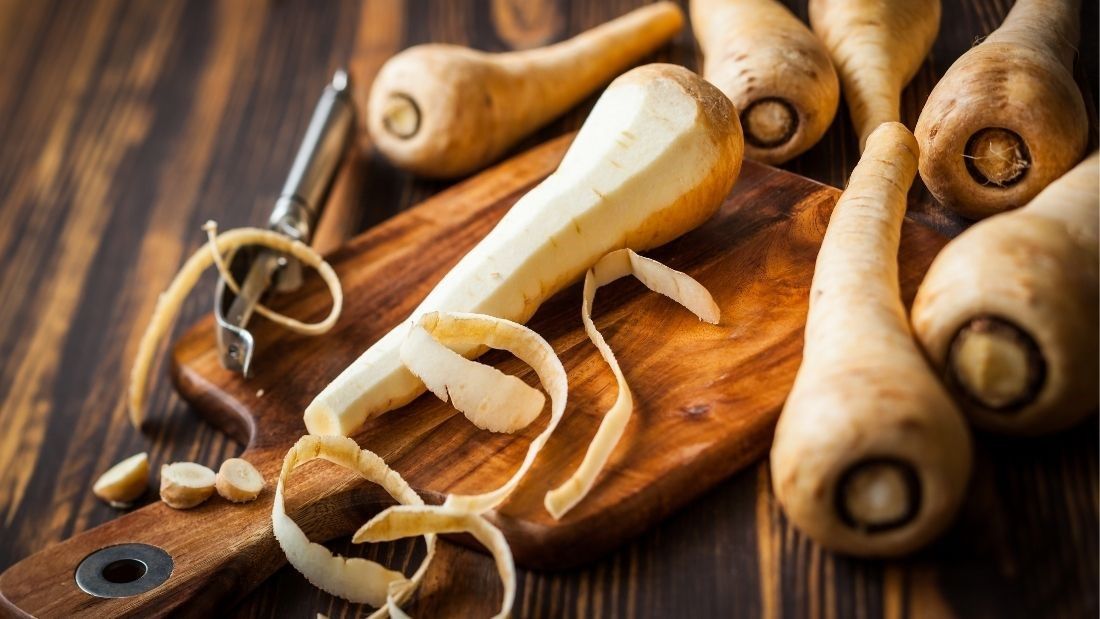
Walnuts
Walnuts are a good source of healthy omega-3 fats, containing more than any other nut. Omega-3s reduce inflammation, protect heart health and may influence mood and sleep. Walnuts have been shown to help lower cholesterol. One reason walnuts may protect against heart disease is because they are rich in an amino acid called arginine, important for the production of a substance that helps keep arteries flexible. Variety is key, as different nuts offer different health benefits. Go for a small handful a day of mixed unsalted nuts.
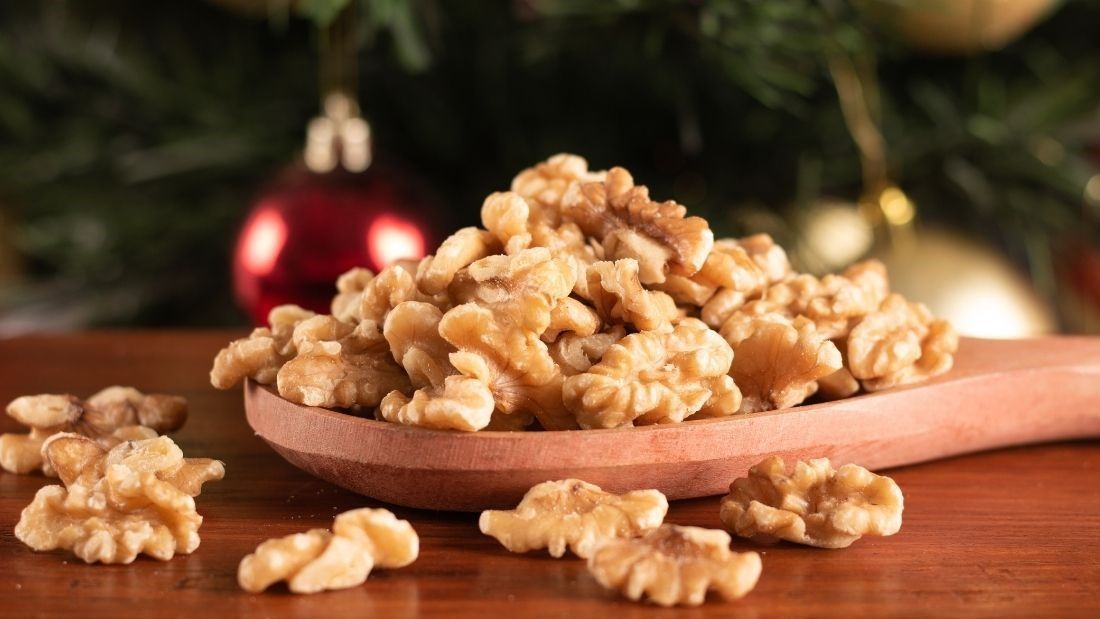
Cranberries
Cranberries provide a healthy dose of vitamin C and other antioxidants but they may also help prevent and treat urinary tract infections (UTIs). They contain natural compounds that can prevent bacteria from sticking to the bladder wall. However, it’s uncertain how effective they are until more research is done. Cranberry juices can be very diluted and extremely sweet, so the key message is, if you are suffering, you can try cranberry juice, but don’t drink too much, too often!

Sweet potatoes
Sweet potatoes like other root veg, are a great source of vitamins, minerals, antioxidants and fibre. However, orange and red fruit and veg (like carrots, butternut squash, red pepper, cantaloupe melon, papaya, mango and sweet potatoes) are the best plant sources of beta-carotene. Your body converts beta-carotene into vitamin A which we need for healthy skin and mucus membranes, immune system, eye health and vision. Beta-carotene is also an antioxidant, protecting your cells and DNA from free radicals that can cause damage. Sweet potatoes are delicious baked, roasted or mashed. We recommend sweet potato wedges with a vegan chilli.
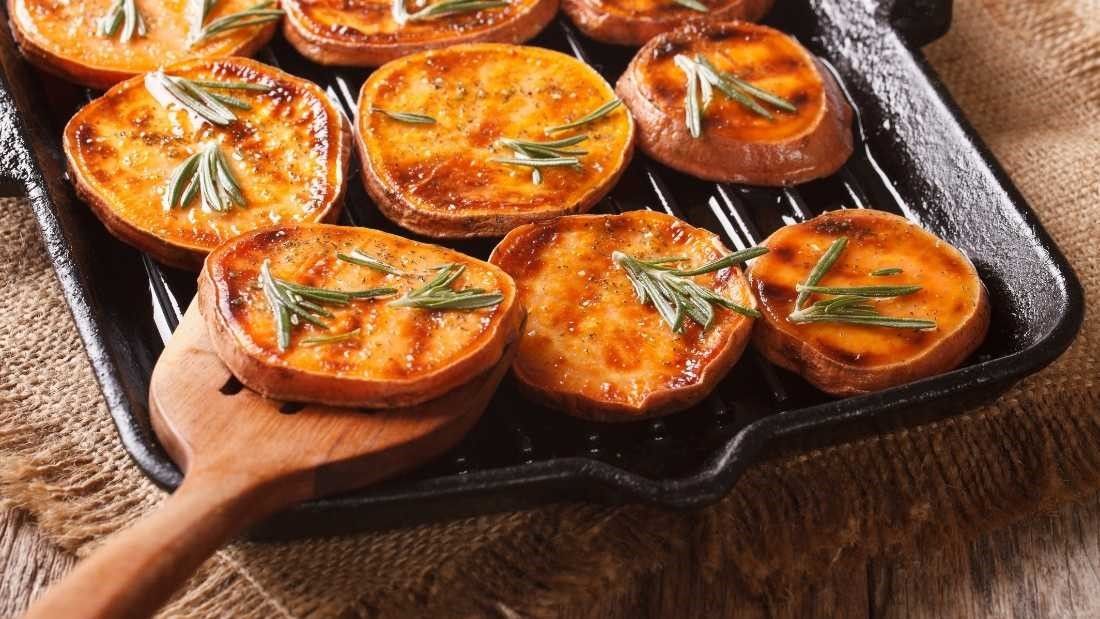
Satsumas
Satsumas are packed with vitamin C, important for your body’s ability to heal and repair and essential for healthy bones and teeth. Vitamin C protects your DNA from damage and helps you absorb iron from food. Most citrus fruits contain more than your daily needs – 40 mg – in one piece. You may need two of the smaller fruits, like satsumas, easy-peelers, mandarins and tangerines to cover your vitamin C needs, but that is no chore!
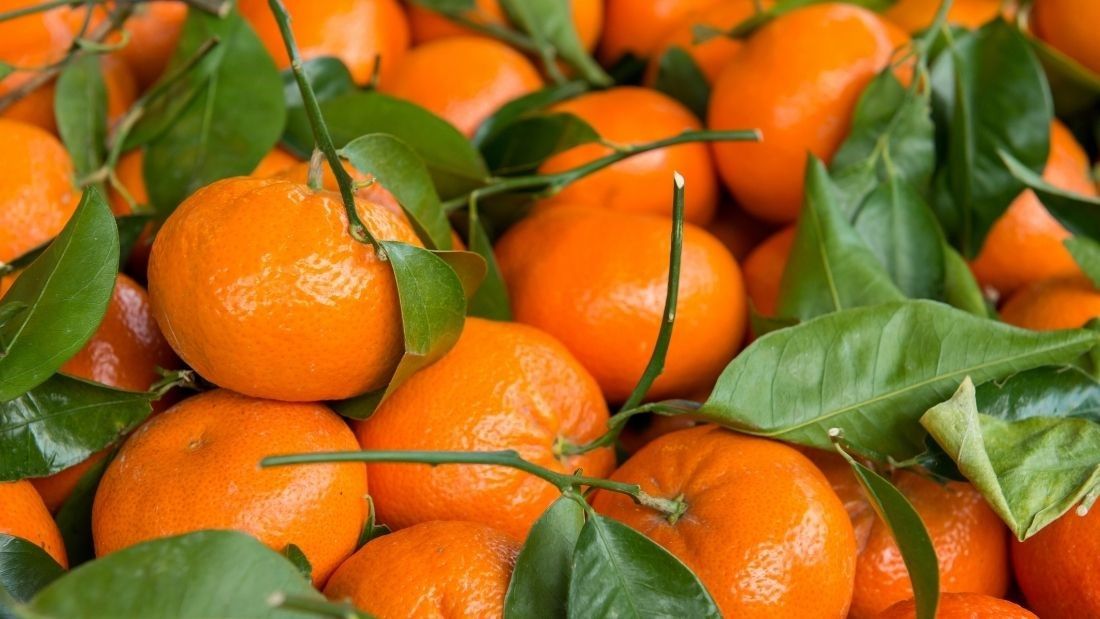
Dates
Dates are a source of vitamins and minerals and a great fast energy snack. Blend them with nuts and other dried fruit to make your own energy bars – or stuff them with walnuts or nut butters and cover them in chocolate for a decadent festive treat. Medjoul dates are known as the king of dates due to their size and taste.
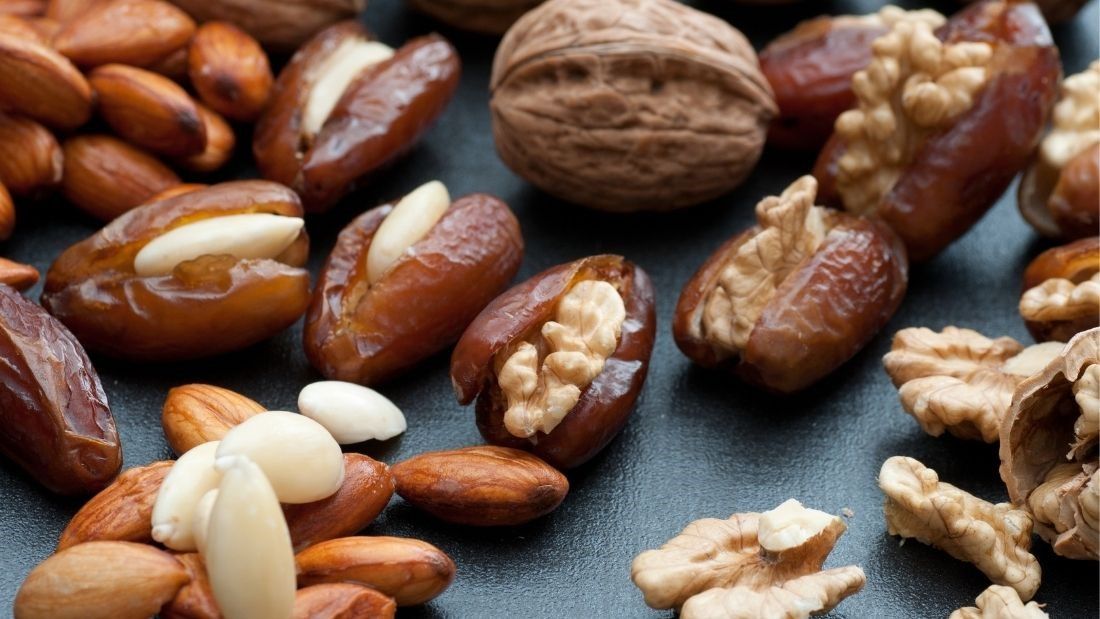
Figs
Figs contain natural sugars that come with fibre and other nutrients, so they’re digested slowly ensuring a sustained energy release. They contain almost no fat and contribute nicely to your daily intake of protein, vitamin K, several B vitamins and minerals. Six dried figs provide 13 per cent of the calcium you need, 17 per cent of the iron (8.5 per cent for menstruating women),12 per cent of vitamin K, 12 per cent of potassium and a good dose of magnesium and copper. All in all, figs are great! Add them to a tagine for a winter warming supper or gently warm them in some water until it has nearly all evaporated and serve with vegan yoghurt and chopped nuts. Don’t forget… For we all like figgy pudding, so bring it out here!
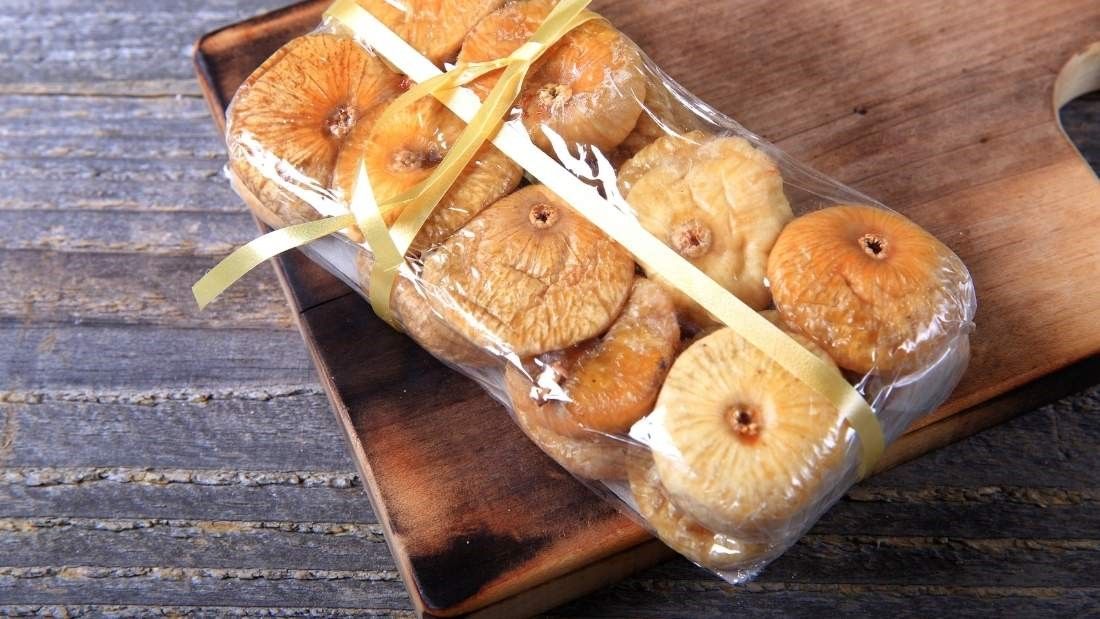
Chocolate
Chocolate (cacao) contains powerful phytochemicals that stimulate the nervous system and trigger the release of endorphins – ‘happy hormones’ and dopamine, a potent neurochemical linked to sexual arousal and pleasure. It’s no surprise then that chocolate can act as a mild antidepressant! It also packs some strong antioxidants that help fight inflammation, protect blood vessels and DNA from damage and aid our immune system. If you want to get giddy with chocolate, go for the darker versions with the highest content of cocoa.

There you have it – the top 10 festive foods to keep you healthy and happy over the holidays – Merry Christmas! For recipes and more see our Deliciously Vegan Christmas guide.




